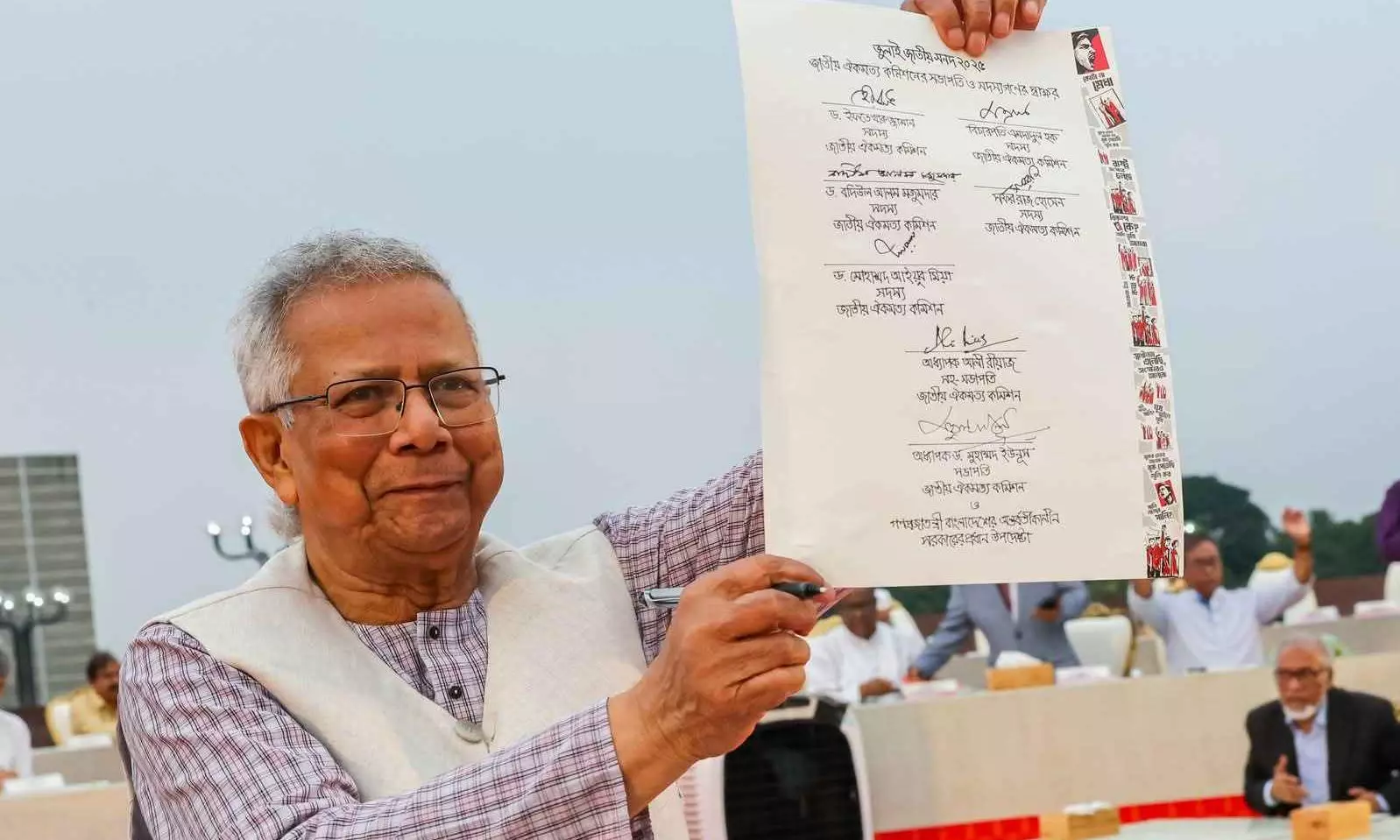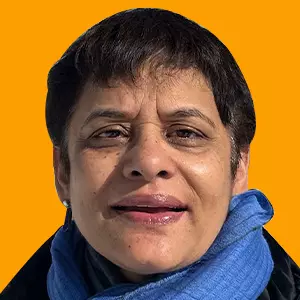
- Home
- India
- World
- Premium
- THE FEDERAL SPECIAL
- Analysis
- States
- Perspective
- Videos
- Sports
- Education
- Entertainment
- Elections
- Features
- Health
- Business
- Series
- In memoriam: Sheikh Mujibur Rahman
- Bishnoi's Men
- NEET TANGLE
- Economy Series
- Earth Day
- Kashmir’s Frozen Turbulence
- India@75
- The legend of Ramjanmabhoomi
- Liberalisation@30
- How to tame a dragon
- Celebrating biodiversity
- Farm Matters
- 50 days of solitude
- Bringing Migrants Home
- Budget 2020
- Jharkhand Votes
- The Federal Investigates
- The Federal Impact
- Vanishing Sand
- Gandhi @ 150
- Andhra Today
- Field report
- Operation Gulmarg
- Pandemic @1 Mn in India
- The Federal Year-End
- The Zero Year
- Science
- Brand studio
- Newsletter
- Elections 2024
- Events
- Home
- IndiaIndia
- World
- Analysis
- StatesStates
- PerspectivePerspective
- VideosVideos
- Sports
- Education
- Entertainment
- ElectionsElections
- Features
- Health
- BusinessBusiness
- Premium
- Loading...
Premium - Events

India wants timely, stable elections, but hope fades as key Bangladesh parties, including NCP and Left, reject blueprint for democratic reforms
On October 17, shortly after the much awaited and touted “July Charter” of his country was signed, head of the interim Bangladesh government Muhammad Yunus declared that “the tune we played together today is a tune of unity”. Ironically, however, the notes of dissonance struck by various political parties over the Charter have now set the alarm bells ringing.
Questions are also being raised whether India’s neighbour will be able to hold elections, slated for February, on time. Yunus, chief adviser of the interim government since the then Prime Minister Sheikh Hasina’s ouster in August last year, led the National Consensus Commission, which came out with the July Charter after consultations with parties across the political spectrum.
Also read: Bangladesh rocked again as clashes erupt over Yunus govt's July National Charter
No common ground
Yunus is hopeful that the same spirit of “unity” will mark the upcoming Jatiya Sangsad (Parliament) elections in Bangladesh. This, however, seems unlikely given the sharp differences among the political parties on the Charter itself. Consensus on a whole range of issues has eluded the Charter, with parties that have signed it finding common ground on only 28 of the 84 proposed reforms.
Besides, the Charter was signed by only 24 of the 30 parties that participated in discussions leading up to it. For instance, the newly-minted Jatiyo Nagrik Party or National Citizen Party (NCP), an outfit formed by students who led countrywide protests against Sheikh Hasina last year to topple her regime, has not signed the Charter. Neither are the four Left parties on board for it.
However, both the Khaleda Zia-led Bangladesh Nationalist Party (BNP) and the country’s largest Islamist party, the Jamaat-e-Islami, have signed the Charter. The electoral battle is likely to see these two outfits, once close allies, pitted against each other. The smaller outfits are expected to align with either of these two parties.
Also read: Showdown imminent between Bangladesh's Yunus regime and army
Blueprint for democratic reforms
The Charter is meant to serve as a blueprint for democratic reforms in Bangladesh and to bring about much-needed changes in institutions of the state. But with no unanimity among the parties on a majority of the proposed reforms, and no clarity on how or by when they will be implemented, the Charter seems a long way away from ushering in change.
While there is a demand from political parties to have a referendum on the Charter’s implementation, they have differences on when it should be held. The Jamaat and NCP have demanded a referendum before the elections, with the latter also seeking a legal basis for the Charter. The BNP, on the other hand, wants the referendum to be held after the elections.
The lack of consensus has also created an atmosphere of unpredictability around the parliamentary polls. As the political cauldron in Bangladesh simmers, there is no certainty on the holding of the crucial elections. With the BNP being seen as the frontrunner, the Jamaat and the NCP would be seeking to buy more time before polling to improve their chances for a win.
Also read: How Bangladesh’s provocative military strategy fuelled unrest in its hill tracts
Anxious New Delhi
This would undoubtedly be causing New Delhi anxiety even though it knows that the next government in Dhaka will not be a steadfast ally like Sheikh Hasina. A stable government in Bangladesh is in India’s security interests, even if it means engaging diplomatically with a regime that’s not too kindly disposed toward it. It will have to adopt the mantra of working with whoever is in power to protect its own strategic interests in the neighbourhood.
India has already made it clear that the Bangladesh elections should not be delayed and be “free, fair, inclusive and participatory”. Sheikh Hasina’s party, the Awami League, which ruled the roost for 15 consecutive years, of course, cannot participate in the elections, as it has been banned from all political activity under the Anti-Terrorist Act.
With both the Jamaat and BNP having strong links with Pakistan, India would naturally be worried about its arch foe regaining strategic space in Bangladesh. Dhaka-Islamabad ties have warmed up under the Yunus government, with the chief adviser meeting Pakistani Prime Minister Shehbaz Sharif on the margins of the UN General Assembly last month. Another concern for New Delhi is that Islamist elements are gaining further ground in Bangladesh.
Also read: What’s behind Yunus’ anti-India tirade? Fear of Awami revival, power goals
The Hasina factor
New Delhi’s ties with the Yunus-led interim government have been extremely strained owing to Sheikh Hasina’s continuing presence in India. She fled Bangladesh in August 2024 following the mass uprising against what was widely perceived as her authoritarian regime, and Dhaka has been seeking her extradition.
Sheikh Hasina, who had as the PM gone after the Jamaat leadership by setting up the International Crimes Tribunal (ICT), is now herself facing a trial, in absentia, before it for the “crimes against humanity” committed during the students’ protest last year.
The Jamaat, flush with funds, in turn, has seen a significant resurgence after the lifting of the ban imposed on it by the Sheikh Hasina government. It has already launched its electoral campaign, having declared its candidates. Its student wing Islami Chhatra Shibir has won university elections on campuses across Bangladesh, including the most crucial one of Dhaka University.
Also read: Testing time for India's foreign policy: Can Modi govt rise to the challenge?
Fingers crossed
While the Jamaat has been quickly off the mark in its campaigning, its demand for elections based on proportional representation is seen as a tactic to win more seats. The NCP, perceived by many as the B team of the Jamaat, with many of its members having a madrasa or Jamaat background, appears to have had a falling out with the radical Islamist outfit. For instance, it has described the Jamaat’s demand for proportional representation as “planned political deception”.
Amid all this political churn being witnessed in Bangladesh, India has no choice but to play the wait-and-watch game. It’s keeping its fingers crossed for an early election, even if it knows that a challenging road lies ahead for it in seeking to forge cordial ties with the new government in Dhaka whenever it takes over.
(The Federal seeks to present views and opinions from all sides of the spectrum. The information, ideas or opinions in the articles are of the author and do not necessarily reflect the views of The Federal)


